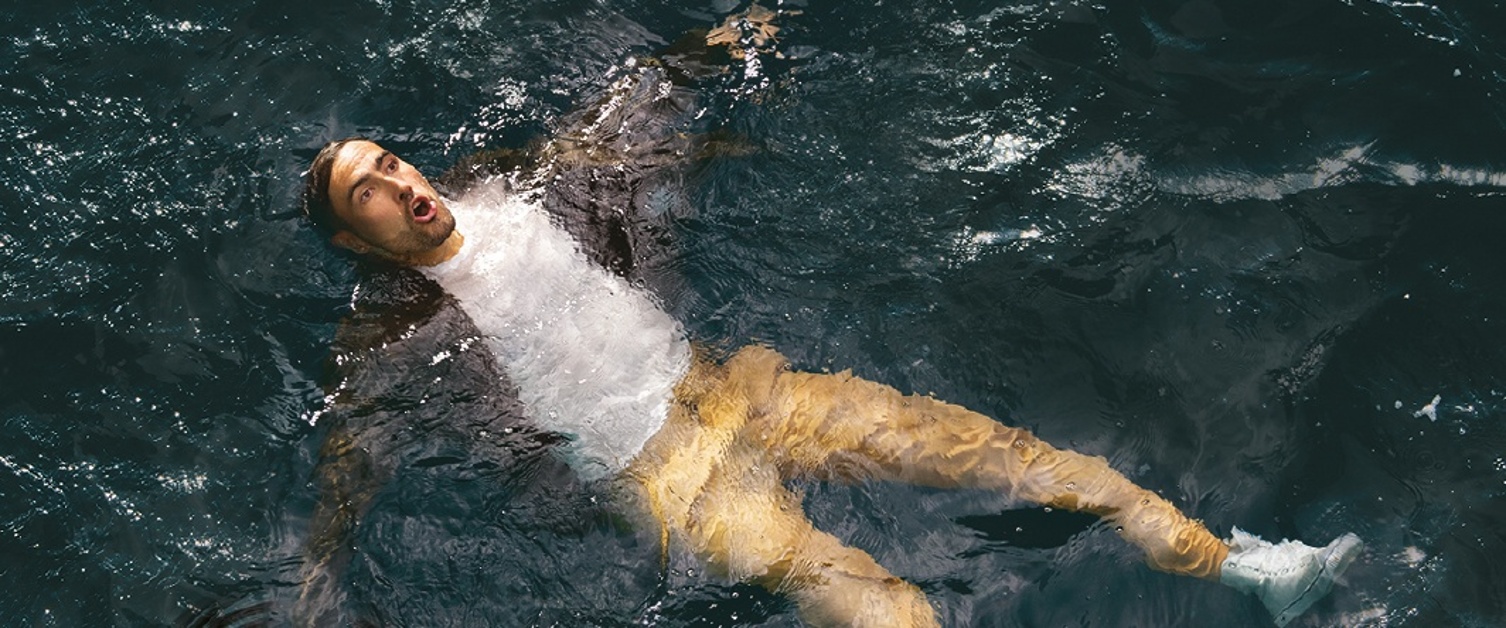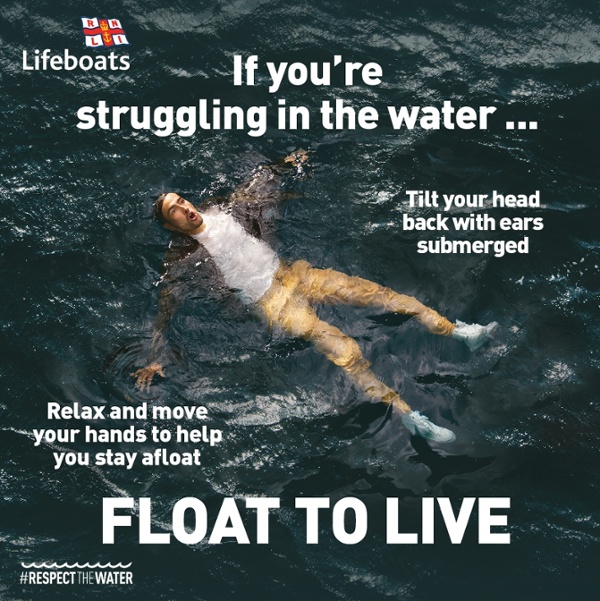EMRTS support for Learn to Float campaign on World Drowning Prevention Day

If you’re struggling in the water this summer, floating could save your life.
A campaign by the RNLI is highlighting the simple lifesaving skill of floating, which could mean the difference between life or death.
It can help combat the body’s natural response to entering cold water which can quickly lead to drowning. Floating can allow the effects the cold water shock to pass, potentially saving lives.
This year’s campaign has been supported with input from EMRTS staff.
A RNLI spokesman said: “We actively encourage practising how to float in a safe environment. It’s a lifesaving skill and having the confidence to float in a life-or-death situation could make all the difference.
“Floating, even for a short time, allows the effects of cold water shock to pass. It enables you to regain control of your breathing and your survival chances will greatly increase.”

The body can go into cold water shock in water with temperatures of 15°C or below, causing the loss of control of breathing and movement, as well as the heart rate and blood pressure to increase, which can lead to cardiac arrest.
The average sea temperature around the UK is just 12°C, while inland waters like lakes, rivers, lochs and reservoirs can be colder - even in the summer.
The scientific research into the RNLI’s Float to Live campaign has been carried out by the Extreme Environments Laboratory at the University of Portsmouth, and backed by members of the National Water Safety Forum.
It’s updated guidance for 2024 is based on studies examining freshwater floating, in addition to saltwater floating. Some of the testing was carried out at the Cardiff White Water Centre, which included work by EMRTS consultants Chris Hingston and Paddy Morgan.
Dr Hingston said: "I was delighted to have the opportunity to support the RNLI as a research participant, knowing I was playing a small part in developing their life-saving, 'Float to Survive' skills and campaign. “As a Service we have attended many drownings over the years, all sad cases, especially as many were potentially preventable.
“I would urge everyone to familiarise themselves with these simple skills on World Drowning Prevention Day. You can even test each other over the summer months, it may one day save a life!”
The RNLI advice if you are struggling in the water is:
- Tilt your head back with ears submerged
- Relax and try to control your breathing
- Move your hands to help you stay afloat
- Once you are over the initial shock, call for help or swim to safety
- In an emergency call 999 or 112 and ask for the Coastguard.
For more information visit: